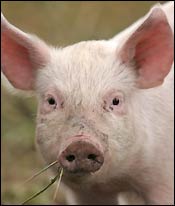Sometimes it's easy for me to think that the struggles of black people were limited to the United States, because that's the way it was taught to me in my history classes growing up. However, this morning I was reading an interesting article about the struggle of the black people in Canada and how they were celebrating black history month as well.
For some reason it never occurred to me that while many slaves were escaping the south to seek freedom in the north of the country, quite a few of them also crossed the border into Canada in hopes of completely escaping the racial prejudices and injustices that were common practice in the United States. Although these were not the only black people to settle in Canada, many blacks who went to Canada seeking freedom quickly found that this wasn't the case. Although not similar to the American south during the time, there was still racism and discrimination because of the native Canadian perception of black people.
There was actually a point when the prime minister of Canada baned any negro person from immigrating. Although this only lasted a year it was symptomatic of the treatment of black people in the country. I started reading about the migratory history of black people into Canada which was fascinating. I also learned about the tension between those of direct African descent and those of Caribbean ancestry.
I decided to take a look at the famous Black Canadians after reading this article and was surprised at what I found. It's weird, but I started feeling a strange kinship with my Canadian brothers and sisters that I never had before.
I decided to devote this blactoid to them. As always have a good day and enjoy.
Blactoid (Canadian Edition): Josiah Henson was a slave born in Maryland who later fled to Ontario, Canada, a refuge for fugitive slaves. As a young boy he was whipped by his father for standing up to a slave owner. Later he was sold away from his family in an estate sale, although was later bought back by the same owner. He saved up $350 over the years in order to buy back his freedom only to find out that that price had been raised to $1000. With little hope of reaching that goal and with the threat of being sold again he fled to Canada in 1830. He founded a settlement and school for fugitive slaves in Dawn, Canada West. He bought a 200-acre piece of land on which to start his settlement and they were quite prosperous for many years.
After working as a farmer he eventual returned to the states as a Methodist preacher and abolitionist, preaching from Ontario down to Tennessee.

